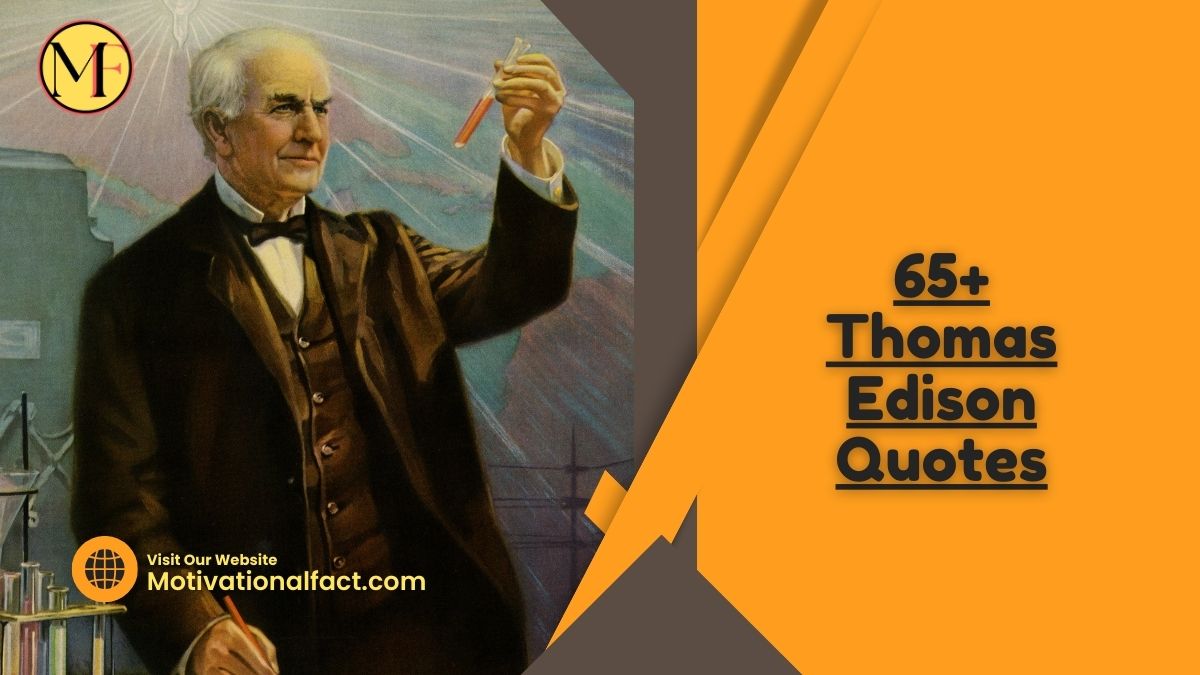Among the pantheon of pioneers who orchestrated the shift from 19th to 20th century society through invention, no figure occupies such a universally eminent stature as Thomas Edison. With astonishing perseverance, Edison transformed electric communication, illumination, media and transportation landscapes singlehandedly – sowing seeds for modern technology giants.
Yet while his legendary brilliance flourished via record-setting patents, equally notable were Edison’s humble origins devoid of privilege plus his preference for diligent endeavor over eureka moments alone. Indeed beyond the epoch-making devices, the real inventor who illuminated the world for posterity embodied a potent amalgamation of genius, grit, business acumen and foresight. This article takes an expansive look through the eclectic life and legacy of one of America’s seminal inventive heroes.
Early Life and Education
Born on February 11, 1847, in the small canal town of Milan, Ohio, Thomas Edison grew up in modest surroundings as the youngest of seven siblings. His father Samuel Edison Jr., a shingle maker, businessman and committed abolitionist, fostered early mental stimulation by introducing literature like Gibbon’s Decline and Fall of the Roman Empire during his son’s home-schooling.
Edison’s inquisitive acumen and entrepreneurial proclivity showed up by age 12 when he sold snacks plus newspapers aboard trains, setting up a mobile laboratory inside one languishing boxcar to perform chemical experiments. However, a grave mishap with combustible chemicals inside the mobile lab caused Edison to lose much of his hearing permanently – making him hard of hearing with additional speech ordeals throughout life.
After moving to Port Huron, Michigan aged 13 when railway expansion disrupted canal trade, Edison grew increasingly fascinated with telegraphs following visits to offices of Detroit Commercial. Despite only three months of official schooling under Reverend G. B. Engle, Edison became proficient in Morse Code through self-education, securing youthful operator jobs including vital night shift roles relaying Associated Press bulletins on the Civil War’s end.
Edison initiated his legendary career trajectory in the burgeoning sphere of telecommunications by age 21 after relocating nearer New York, through inventing an automatic electric vote recorder adopted by legislatures for swiftly tallying votes. This 1868 breakthrough was a precursor to pioneering feats altering modern living.
The Menlo Park Laboratory
Following over a decade of itinerant work across America’s Midwestern and Eastern states to nurture professional ascent, Edison planted roots in 1876 by establishing an independent laboratory-factory complex at Menlo Park, New Jersey – an era-defining move. This effectively marked the dawn of modern research institutions predating later corporate equivalents like Bell Labs.
With financial assistance from multiple investors like Western Union president William Orton, Edison set up the Menlo Park laboratory spanning two city blocks as an idea incubator bringing concept to commercialization under one roof via integrated spaces facilitating each intermediate stage. Here experimentation capabilities, model construction venues plus testing apparatus all coexisted to nurture innovation.
Within six prolific years, this inventor colony birthed world-changing creations like the phonograph record player, light bulb, electrical distribution systems and movie cameras thanks to collaborative efforts from Edison’s team of select young mathematics, physics and engineering luminaries dubbed “muckers”. Their employer’s insatiable inventive appetite powered days spanning 16-hour shifts around the clock fueled by catnaps.
Indeed Menlo Park’s highly prolific output across industries covering both consumer products plus industrial systems was directly attributed to Edison’s orderly, expeditionist work ethic underlying meticulous experimentation – trying out myriads of theories and substances for desired functionality enhancements until optimal combinations emerged.
Major Inventions and Their Impact
Among Thomas Edison’s lifetime total of 1,093 U.S. patents shaping modern living, his most illustrious invention remains the commercially viable incandescent light bulb which garnered instantaneous global fame upon public demonstration in December 1879. By encasing a delicate carbon filament within a glass bulb devoid of oxygen, Edison made the first reliably illuminated indoor environment without noxious fumes – soon accessible 24 hours a day.
Thus with one stroke, Edison birthed two epoch-making industries by establishing electricity generation plus illumination companies under Edison Electric Light Company and General Electric alongside business protégé J.P. Morgan. By bringing safe, affordable home lighting from its inaugural Pearl Street Station plant powering one square mile of Lower Manhattan in 1882 onwards, this wizard transformed world nights permanently through iconic bulb inventions still recalling his name even as descendants surpass predecessors in efficiency today.
Beyond lighting up nights eternally, Edison also captivated worldwide audiences in yet another sensory sphere after patenting the phonograph in 1878 – antiquity’s earliest sound recording plus playback device. This pioneering feat helped spawn the modern music business by preserving performances of opera celebrities like Adelina Patti to rural patrons and even awakened a new anthropological calling to protect vanishing Native American languages.
Later by sequencing still photographs shot with his patented motion picture camera, Edison birthed the first moving picture content called The Sneeze in 1889 – a split-second clip that opened floodgates for an entirely new artistic medium and the multifaceted film industry bringing idle fantasy realms to billions over upcoming generations.
Other Notable Inventions and Contributions
Besides the holy triumvirate above encompassing electric lights, recorded sound and motion pictures which changed modern living indelibly through birth of associated mega-industries, Edison continually contributed improvements across complementary spheres touching daily life.
For elevating telephonic conversation fidelity significantly, Edison patented the carbon telephone transmitter in 1877 building upon Alexander Graham Bell’s revolutionary device with enhanced sensitivity. By perfecting components conveying vocal vibrations electronically, Edison enabled articulation-free long-distance communication.
To untether lighting applications from grid-reliance, Edison spent a decade developing durable alkaline storage batteries marketed in 1903 through his Edison Storage Battery Company. These long-life rechargeable cells crucially supported early household electrification and automotive starting, besides powering mining headlamps plus submarine systems over subsequent years.
Edison’s creative restlessness also birthed progenitor devices powering later cinema design advances like the kinetoscope unveiled in 1891 for individualized viewing of sequential images conveying illusory motion. Additionally, he helped advance stock tickers, ore refining, cement manufacturing and World War I naval defense among 500 diverse patents. Thus by repeatedly spawning first-generation products inspiring successor models, Edison illuminated multiple realms permanently.
Edison’s Entrepreneurial Spirit and Business Acumen
If Menlo Park stood as the epitome of organized scientific inquiry, Edison complemented his inventor persona equally through astute commercial instincts and strategic acumen that brought lab concepts into daily practical usage.
Soon after unveiling pioneering early creations, Edison continually incorporated associated manufacturing entities spanning electrical lighting corporations, iron ore processing plants and motion picture studios to implement commercialization. Thereby he wisely retained both financial plus operational involvement over the Fourteenth Street Manhattan facilities outputting refined market-ready solutions.
For raising essential capital to underwrite the significant manufacturing demands of his prototypes, Edison secured backing from financiers like J.P. Morgan and the Vanderbilts through equity shares. Eventually in 1889, with injection from industrialists, Edison combined associated production firms into Edison General Electric Company, subsequently merging with archrival Thomson-Houston Electric Company ultimately forming General Electric – the modern multinational behemoth.
Amplifying his business foresight furthermore, Edison aggressively protected intellectual rights through patents, renowned for proclaiming “a patent is the currency of the inventor”, besides leveraging high-profile publicity to attract investor interest. Thereby by strategically directing the complementary vectors of ideation, legal authority and commercialization, Edison skillfully nurtured ventures from vision to lasting value.
Edison’s Legacy and Influence
With 1,500 global patents covering quintessential fixtures of modern living like electric grids and motion pictures that catalyzed 20th century consumer comforts plus multi-billion dollar associated industries, Thomas Edison remains history’s most prolific lone inventor. He created the world’s first industrial research center at Menlo Park that institutionalized experimentation, embodying holistic ideation to commercialization capabilities later mirrored across corporate laboratories worldwide.
Thus beyond immense technical contributions illuminating bedrooms, intensifying long-distance calls and bringing fantasy realms to life, Edison crucially inspired systematic innovation by organizations which accelerated living standards globally. Thereby his ingenious legacy exceeds standalone devices enveloping institution-scale influence.
Through obsessive dedication, Edison proved naysayers questioning viability of alternating electrical current wrong by displaying breathtaking mastery over science application for human progress. Thereby he unquestionably emerged the heroic poster-boy inventing icon for America’s Gilded Age marking its technoscientific ascendancy over European rivals. His lasting fame made Edison’s name virtually synonymous with human ingenuity.
By continually unlocking nature’s mysteries through tenacious work translated into utilities easing modern hardship via manufactured products plus forged corporate forces, Thomas Edison not only illuminated nights perpetually but cast a glowing beacon towards elevated living with his lasting exemplar. Truly, behind apparatuses changing civilization reside the intrepid minds daring to first dream what their descendants enjoy.
Conclusion
Through single-minded lifetime quests unveiling practical possibilities hidden within science and nature’s laws, visionaries like Thomas Edison profoundly expanded life’s potential for all subsequent generations while nurturing America’s innovative legacy. By setting up pioneering idea nurseries, securing legal authority over intellectual properties and incorporating commercial forces to amplify inventive output globally from Menlo Park’s fertile grounds, Edison illuminated every modern home with the fruits of his brilliance alongside associated industries employing millions. Thereby beyond bulbs starting bedroom nights eternally, Edison crucially institutionalized organized research and development endeavors presently driving human progress everywhere via successor corporations. Though 19th century society derided some seemingly fanciful inventions like the phonograph initially, posterity continues reaping their ubiquitous existence through three centuries thereby validating the wizard of Menlo Park’s lasting clairvoyance. Indeed among pioneers of applied science and market-directed innovation shifting modern paradigms indelibly, Edison remains both the legendary trailblazer plus enduring icon kindling creative spark for future inventors through his extraordinary life’s work shaping our age.
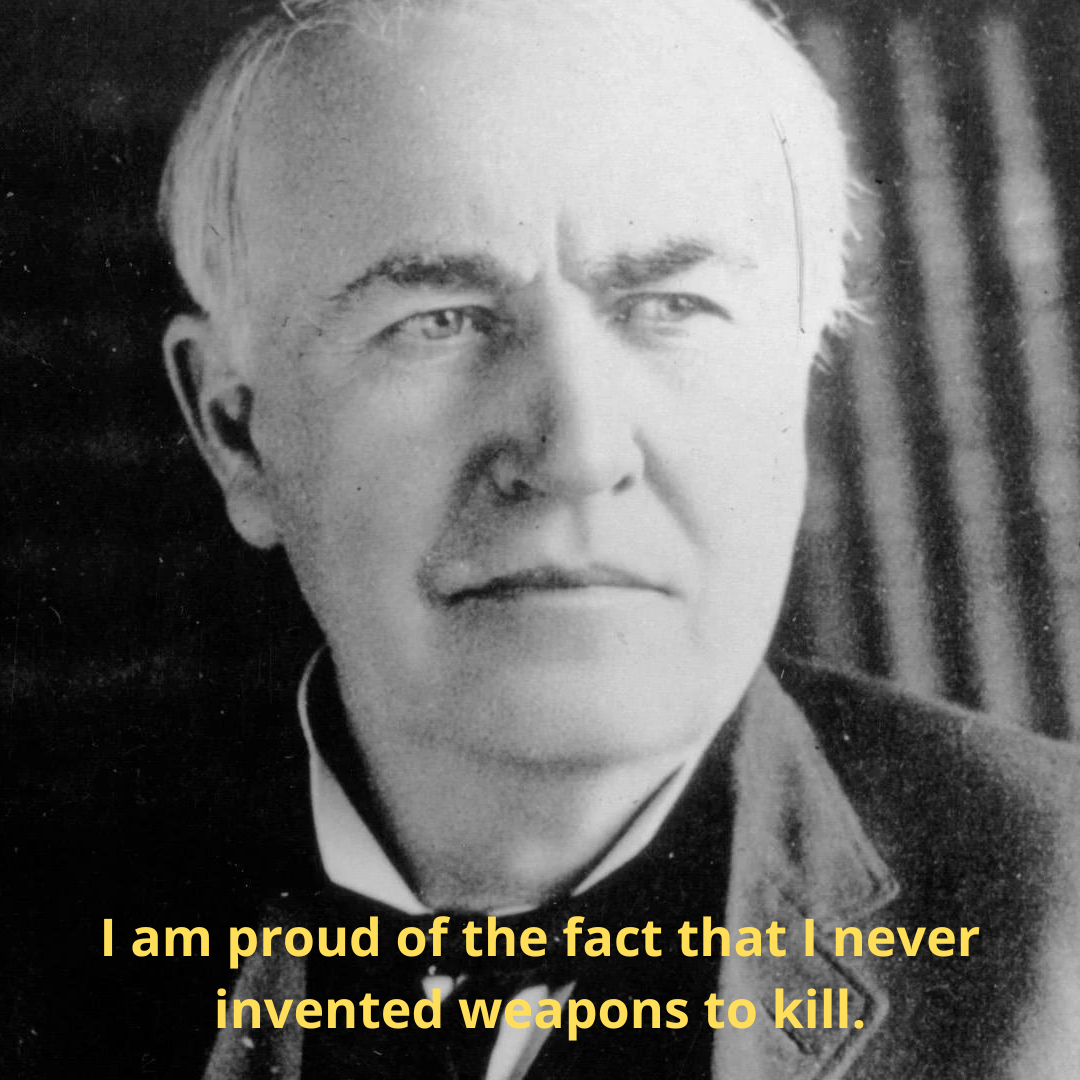
I am proud of the fact that I never invented weapons to kill.
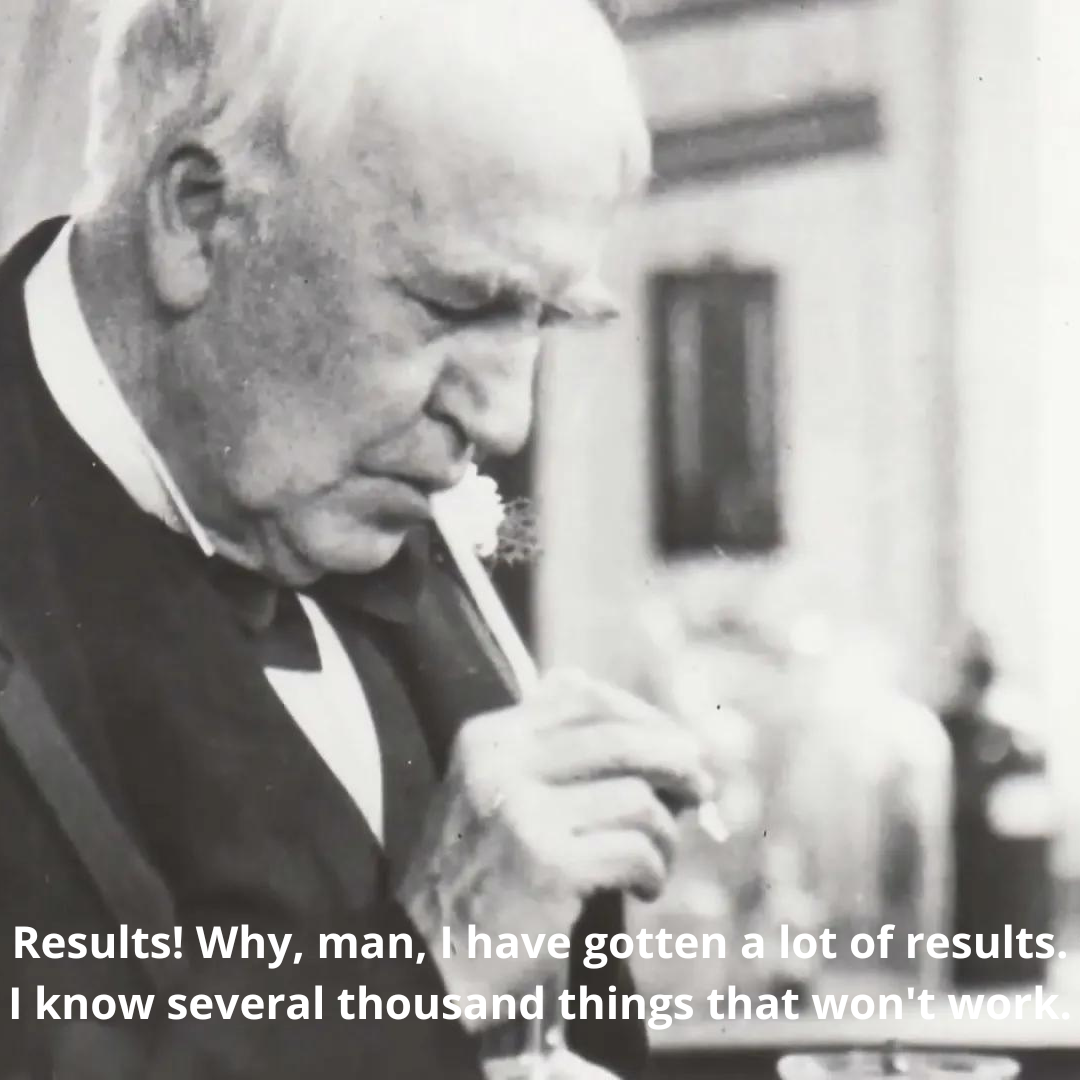
Results! Why, man, I have gotten a lot of results. I know several thousand things that won’t work.
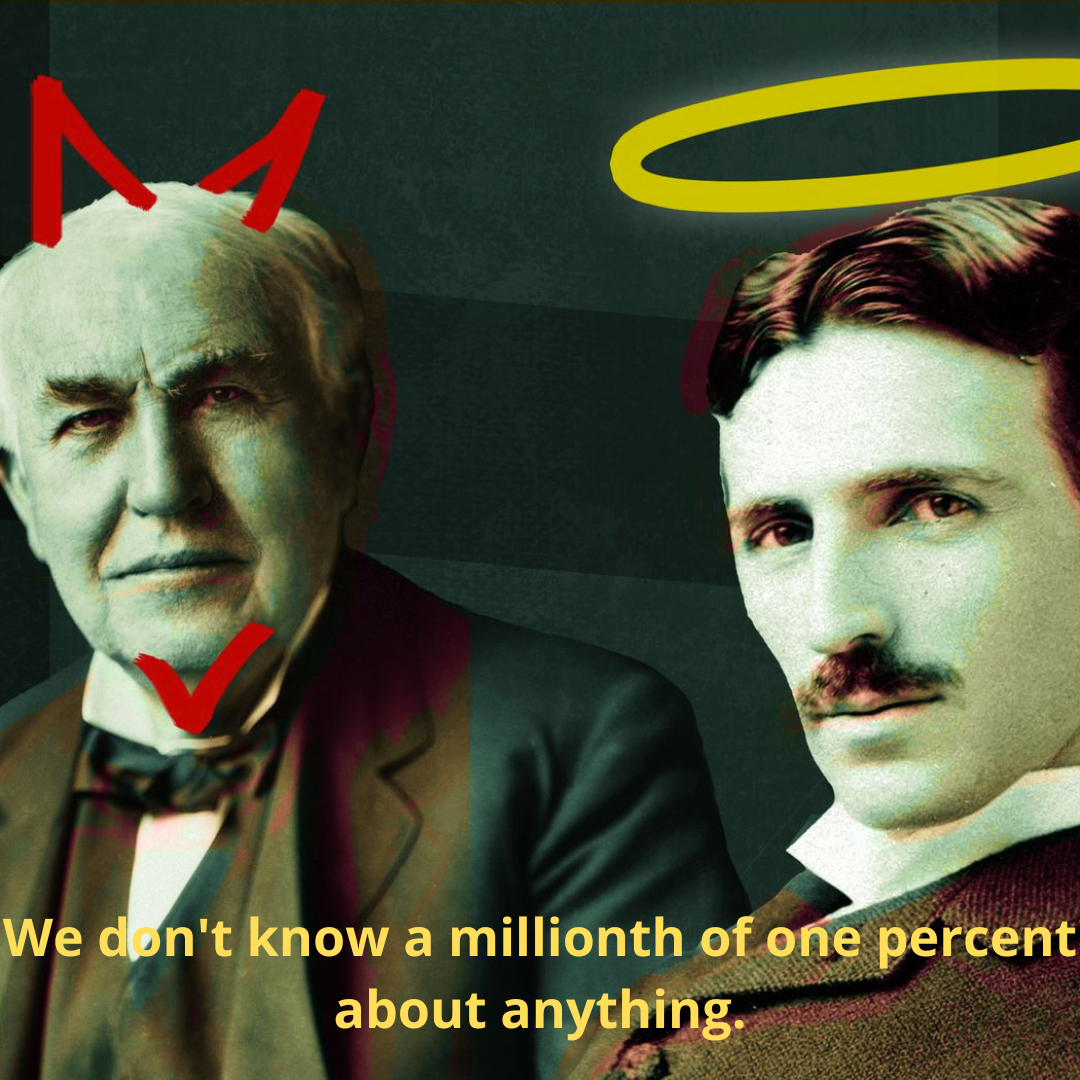
We don’t know a millionth of one percent about anything.
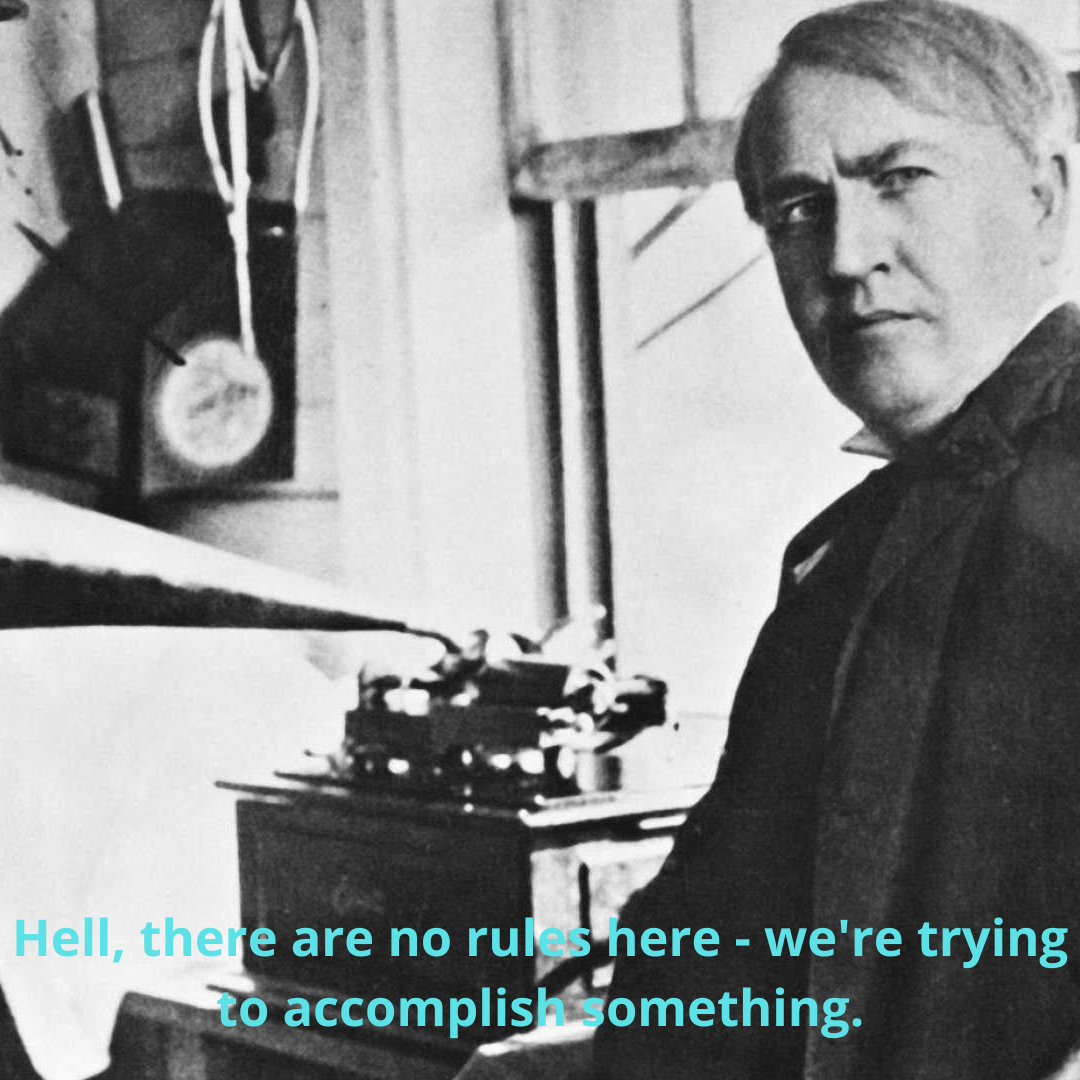
Hell, there are no rules here – we’re trying to accomplish something.
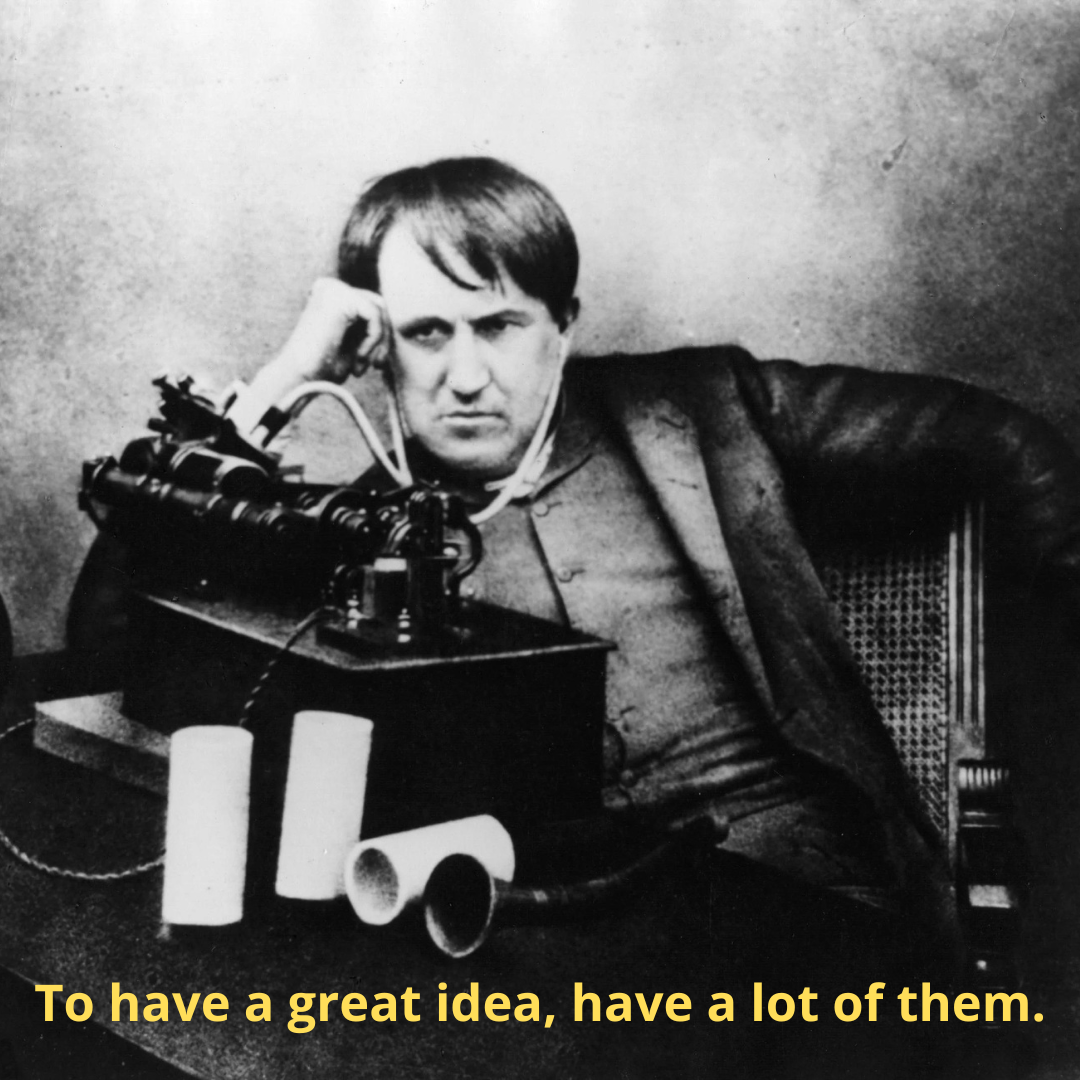
To have a great idea, have a lot of them.
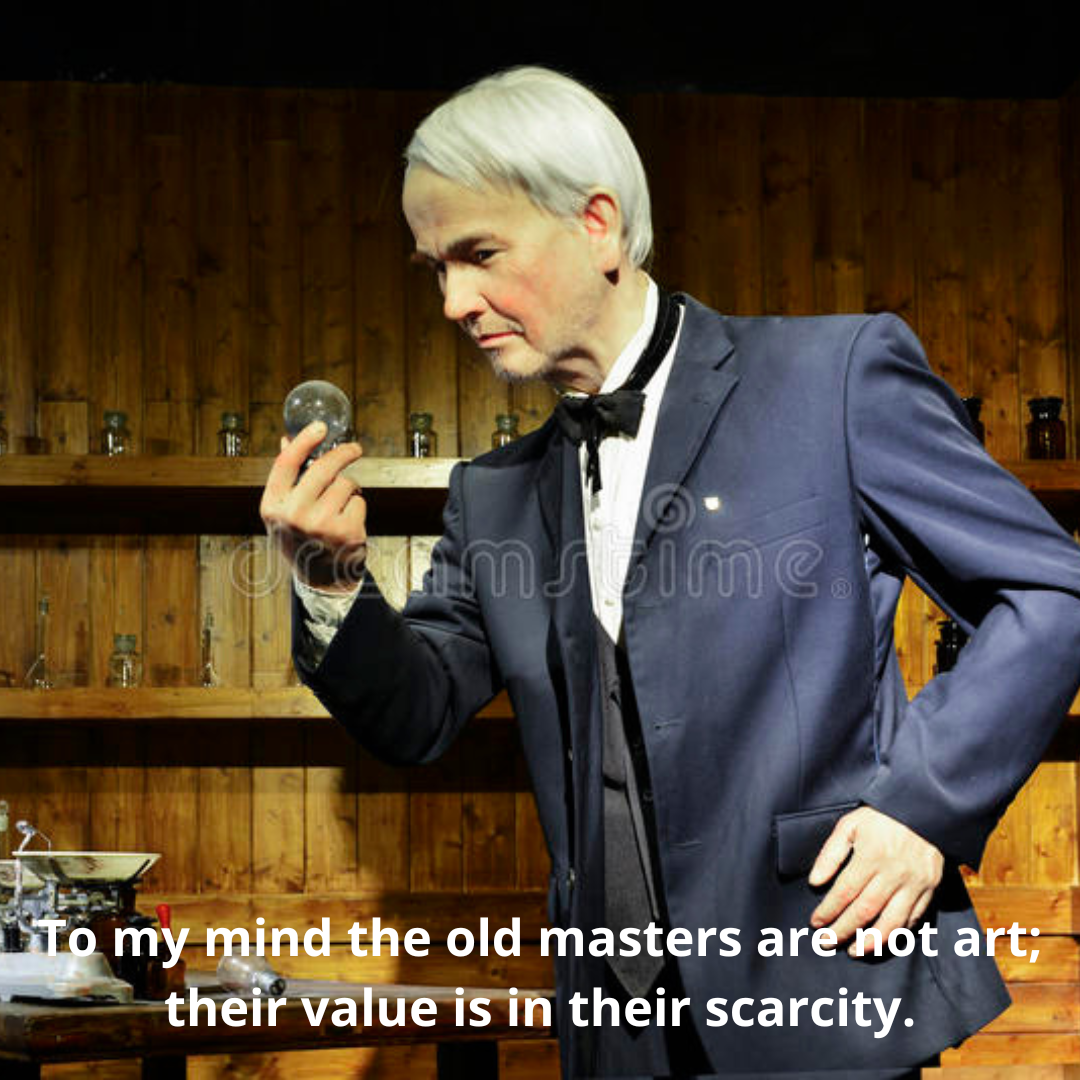
To my mind the old masters are not art; their value is in their scarcity.
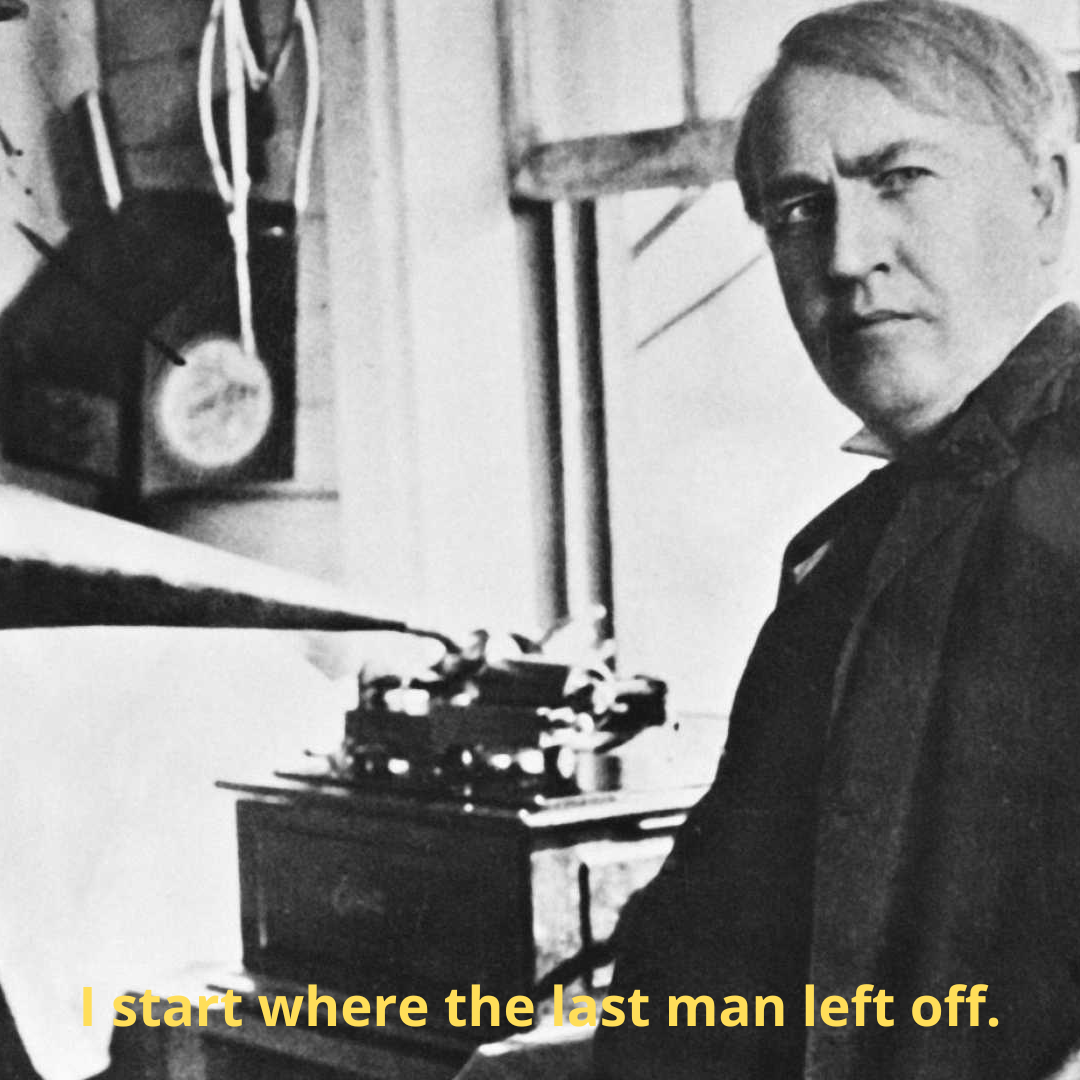
I start where the last man left off.
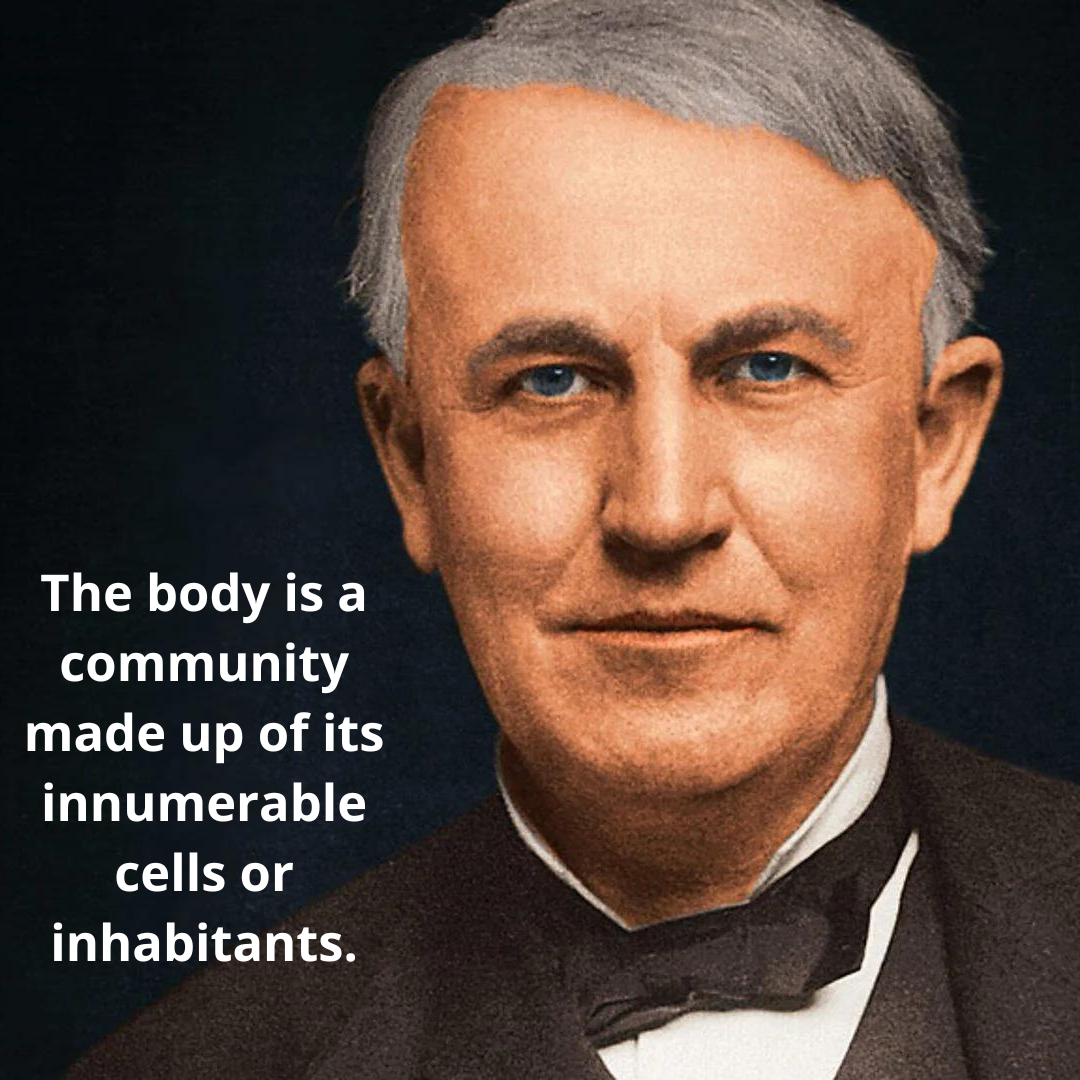
The body is a community made up of its innumerable cells or inhabitants.
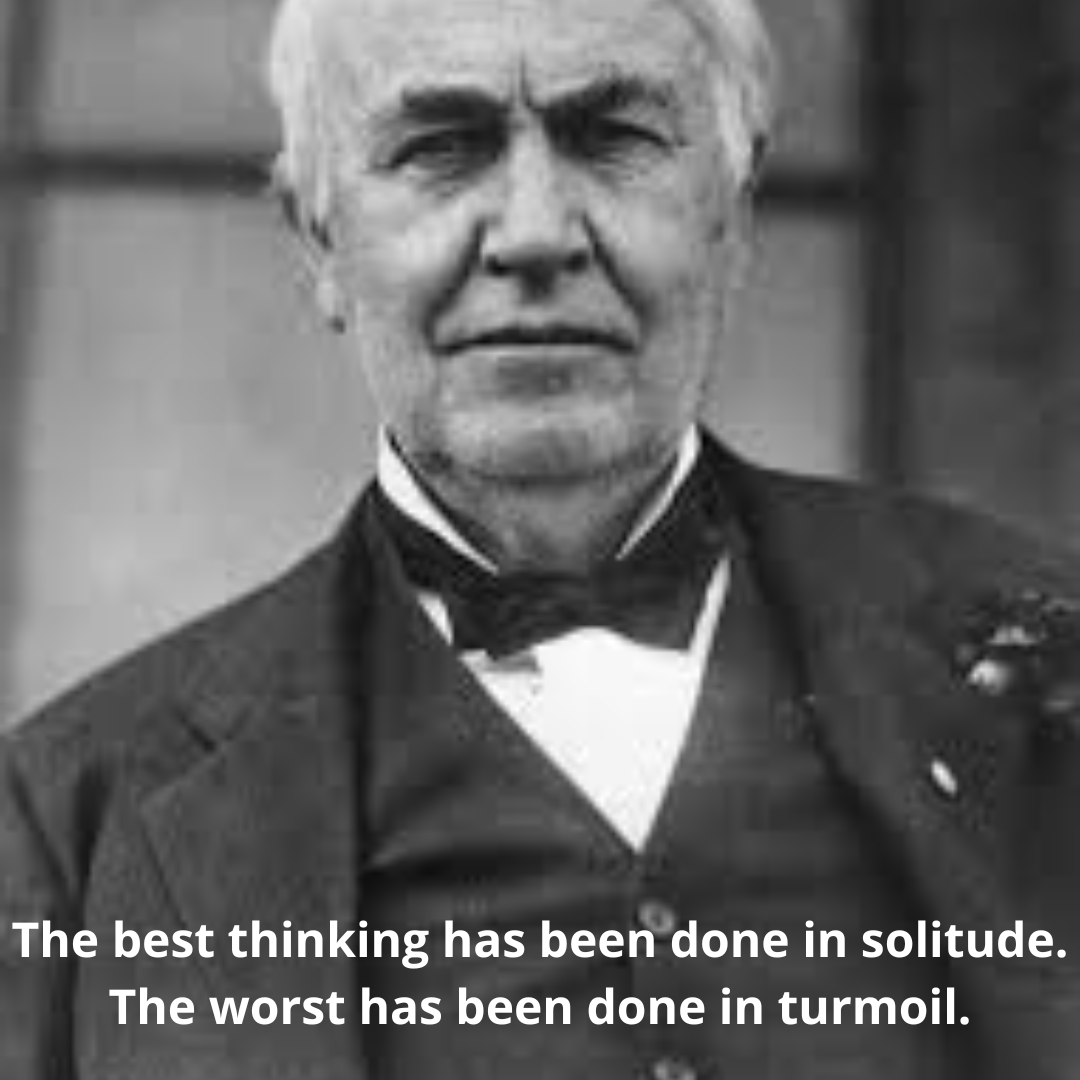
The best thinking has been done in solitude. The worst has been done in turmoil.
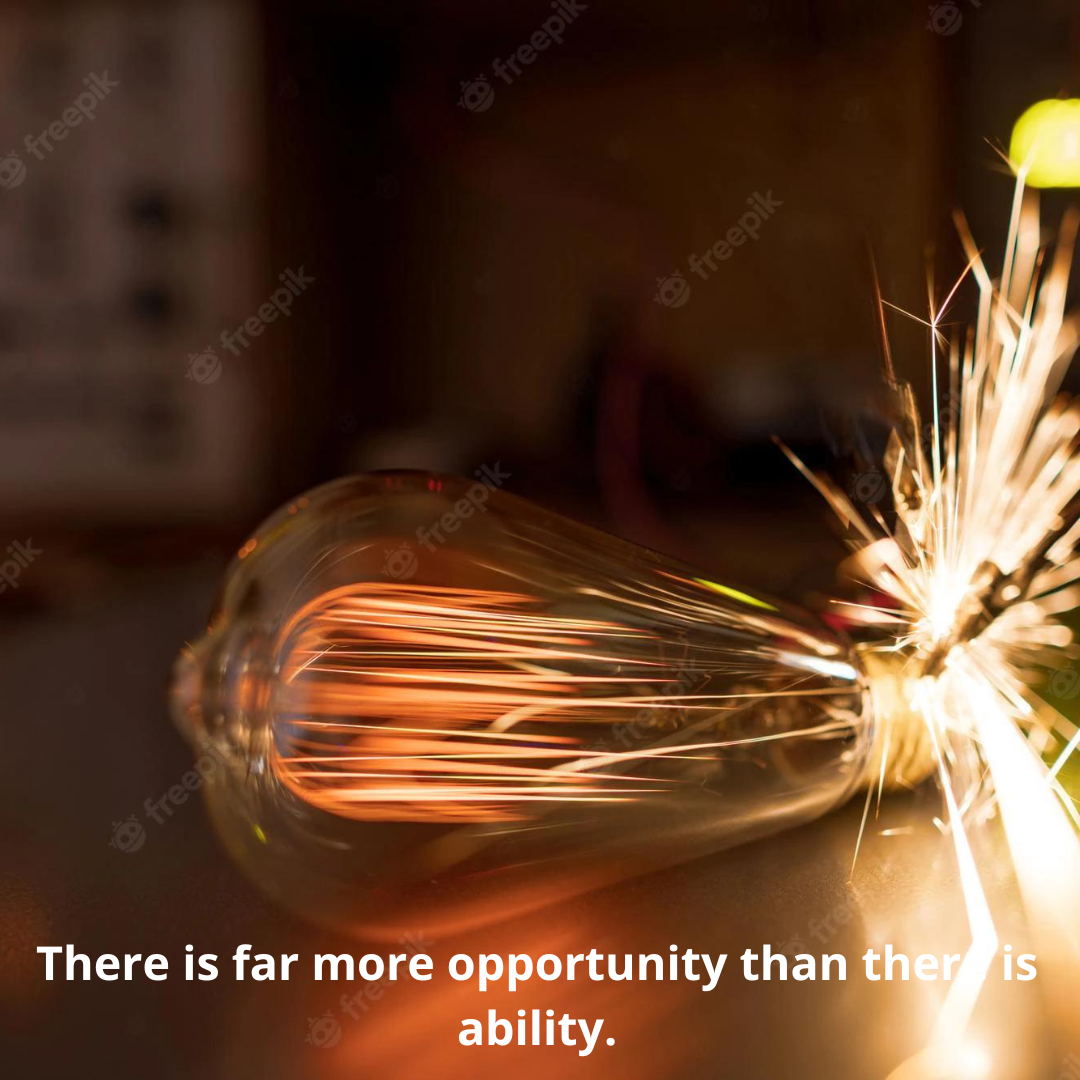
There is far more opportunity than there is ability.
| Quote |
|---|
| “Our greatest weakness lies in giving up. The most certain way to succeed is always to try just one more time.” – Thomas A. Edison |
| “I have not failed. I’ve just found 10,000 ways that won’t work.” – Thomas A. Edison |
| “Having a vision for what you want is not enough…Vision without execution is hallucination” – Thomas A. Edison |
| “Opportunity is missed by most people because it is dressed in overalls and looks like work.” – Thomas A. Edison, Thomas Edison Quotes about opportunity |
| “There is a better way for everything. Find it.” – Thomas A. Edison |
| “The successful person makes a habit of doing what the failing person doesn’t like to do.” – Thomas A. Edison |
| “Success is 90% perspiration and 10% inspiration!” – Thomas A. Edison |
| “Tomorrow Is My Exam but I Don’t Care Because A Single Sheet of Paper Can’t Decide My Future” – Thomas A. Edison |
| “I never view mistakes as failures. They are simply opportunities to find out what doesn’t work.” – Thomas A. Edison |
| “Never go to sleep without a request to your subconscious.” – Thomas A. Edison |
| “Your worth consists in what you are and not in what you have.” – Thomas A. Edison |
| “The greatest invention in the world is the mind of a child.” – Thomas A. Edison |
| “Each time you fail, you have eliminated another wrong option.” – Thomas A. Edison |
| “A diamond is a piece of coal that stuck to the job” – Thomas A. Edison |
| “People are not remembered by how few times they fail, but by how often they succeed. Every wrong step is another step forward” – Thomas A. Edison |
| “The value of an idea lies in the using of it.” – Thomas A. Edison |
| “The secret of success is focus of purpose.” – Thomas A. Edison |
| “Five percent of the people think; ten percent of the people think they think, and the other eighty-five percent would rather die than think.” – Thomas A. Edison |
| “There is no substitute for hard work.” – Thomas A. Edison |
| “Work while others are wishing.” – Thomas A. Edison |
| “Time is really the only capital that any human being has, and the only thing he can’t afford to lose.” – Thomas A. Edison |
| “Restlessness is discontent and discontent is the first necessity of progress. Show me a thoroughly satisfied man and I will show you a failure.” – Thomas A. Edison |
| “What you are will show in what you do.” – Thomas A. Edison |
| “I find out what the world needs. Then I go ahead and try to invent it” – Thomas A. Edison |
| “Do the thing and the power will come.” – Thomas A. Edison |
| “Every failure is a lesson learned about your strategy.” – Thomas A. Edison |
| “Before you reject an idea, find at least five good things about it.” – Thomas A. Edison |
| “Absorb ideas from every source.” – Thomas A. Edison |
| “A good intention, with a bad approach, often leads to a poor result.” – Thomas A. Edison |
| “There seems to be no limit to which some men will go to avoid the labor of thinking. Thinking is hard work.” – Thomas A. Edison |
| “All bibles are man-made.” – Thomas A. Edison |
| “When you have exhausted all possibilities, remember this – you haven’t.” – Thomas A. Edison |
| “I’ve realized that most of my best ideas have followed a good night’s sleep.” – Thomas A. Edison |
| “Many of life’s failures are people who did not realize how close they were to success when they gave up.” – Thomas A. Edison |
| “I owe my success to the fact that I never had a clock in my workroom.” – Thomas A. Edison |
| “I have far more respect for the person with a single idea who gets there than for the person with a thousand ideas who does nothing.” – Thomas A. Edison |
| “If we did all the things, we are capable of doing, we would literally astound ourselves.” – Thomas A. Edison |
| “Genius is one percent inspiration, ninety-nine percent perspiration.” – Thomas A. Edison |
| “Continued innovation is the best way to beat the competition.” – Thomas A. Edison |
| “Good fortune is what happens when opportunity meets with planning.” – Thomas A. Edison |
| “I didn’t fail 1000 times. The light bulb was an invention with 1000 steps.” – Thomas A. Edison |
| “You can’t realize your dreams unless you have one to begin with.” – Thomas A. Edison |
| “To get a great idea, come up with lots of them.” – Thomas A. Edison |
| “The trouble with most people is that they quit before they start.” – Thomas A. Edison |
| “The biggest failure of man is that he gives up before he realizes how close he was to success.” – Thomas A. Edison |
| “The doctor of the future will no longer treat the human frame with drugs, but rather will cure and prevent disease with nutrition.” – Thomas A. Edison, Thomas Edison quotes are about predicting future |
| “A teacher sent the following note home with a six-year-old boy ‘He is too stupid to learn.’ That boy was Thomas A. Edison.” – Thomas A. Edison |
| “I never perfected an invention that I did not think about in terms of the service it might give others… I find out what the world needs, then I proceed to invent.” – Thomas A. Edison |
| “Never Say I Failed 99 Times, Say I Discovered 99 Ways Which Causes Failure!” – Thomas A. Edison |
| “Vision without execution is delusion.” – Thomas A. Edison |
| “A man’s best friend is a good wife.” – Thomas A. Edison |
| “Success depends on how many experiments you can fit into 24 hours” – Thomas A. Edison |
| “The chief function of the body is to carry the brain around.” – Thomas A. Edison |
| “The First 40 hours of work per week are for survival. Everything after that is for success.” – Thomas A. Edison |
| “Fools call wise men fools. A wise man never calls any man a fool.” – Thomas A. Edison |
| “Our greatest weakness lies in giving up.” – Thomas A. Edison |
| “I failed my way to success.” – Thomas A. Edison |
| “We will make electricity so cheap that only the rich will burn candles.” – Thomas A. Edison |
| “There is always a better way.” – Thomas A. Edison |
| “I do not believe in the God of the theologians, but that there is a Supreme Intelligence I do not doubt.” – Thomas A. Edison |
| “Most of my ideas belonged to other people who never bothered to develop them.” – Thomas A. Edison |
| “The strength of the constitution lies in the will of the people to defend it.” – Thomas A. Edison |
| “I never quit until I get what I want.” – Thomas A. Edison |
| “I’d put my money on the sun and solar energy. What a source of power! I hope we don’t have to wait until oil and coal run out before we tackle that.” – Thomas A. Edison |
| “Non-violence leads to the highest ethics, which is the goal of all evolution. Until we stop harming all other living beings, we are still savages.” – Thomas A. Edison |

Welcome to our blog! My name is Yuvraj Kore, and I am a blogger who has been exploring the world of blogging since 2017. It all started back in 2014 when I attended a digital marketing program at college and learned about the intriguing world of blogging.
